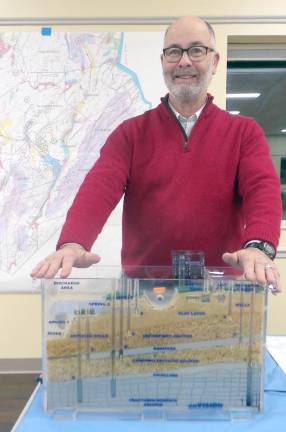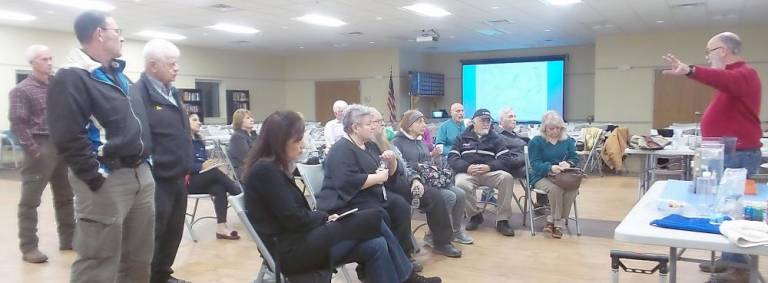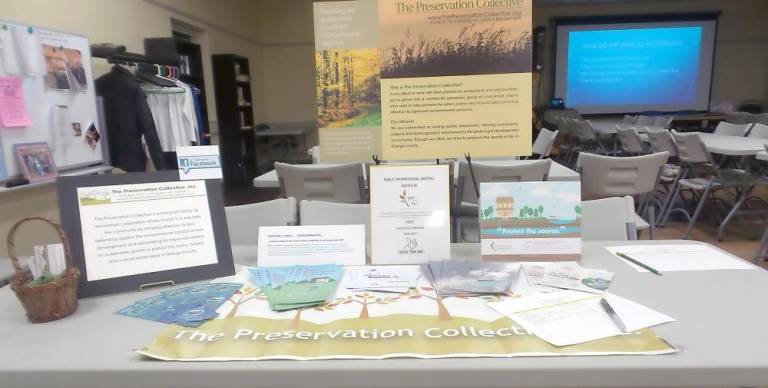Well owners must take responsibility for their water supply, experts say
Chester. Private well owners learned at a forum hosted by the Preservation Collective that water tests are essential to create a baseline record to track changes in their water supply.



Why should we care about the world of water that lies hidden far below our feet? Twenty five people came to the Chester Senior/Recreation Center on Nov. 21 to find out.
The Preservation Collective hosted the informational forum on local aquifers, which supply us with the water we use constantly, for cooking, drinking, washing, and flushing. The forum was led by Jay Beaumont, chair of the Moodna Creek Watershed Intermunicipal Council, who brought maps and a fish tank built to mimic an aquifer. He said he's worked with water for 40 years.
Beaumont's groundwater model showed how water moves through layers of soil and rock before it discharges into surface water, like ponds and rivers. He talked about how wells and pollution affect aquifers, and the importance of water tests, which give property owners a baseline record they can use to track changes in their water supply. Private well owners are responsible for the safety of their water, he said.
Ed Winters of Town of Chester Homeowners Association, a newly formed, unincorporated citizens group, urged property owners get baseline data so they'll have legal standing if their water runs out or gets contaminated. He showed a short video about water shortages at the newly incorporated Village of Palm Tree, which has its water trucked in daily. He said he called the New York State Department of Environmental Conservation and found no one agreed on what could be done to solve Palm Tree's problem. Winters invited people to call him for more information at 845-469-3894 or 914-527-1946.
Tom Becker, the longtime water commissioner in the Village of Chester, spoke about municipal water. He was elected to the Chester town board earlier this month.
The presentations were followed by a roundtable discussion.
"By the end of the meeting, attendees understood the importance in finding out which types of water tests are important in their area and the need to start monitoring their private wells to create a baseline of data for if/when the water supply is at risk," said Tracy Schuh, principal officer of the Preservation Collective.